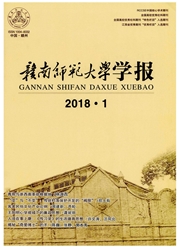
欢迎您!东篱公司
退出

 中文摘要:
中文摘要:
韩国的祭祀活动具有多样性特点,从时间上看有的固定日期,有的则不固定日期;从空间上看,有的在城市或重要的遗址中,有的在家庙,有的则在乡村或神灵活生地;从规模上看,有国家主导的王室祭祀,也有民间家庙祭和灵物祭;从祭祀的目的看,王室祭祀重视政治权威,民间家庙祭祀重视血缘秩序,普遍存在的灵物祭祀强调区域性的消灾保平安功能。
 英文摘要:
英文摘要:
Sacrifice activities in South Korea have various characteristics. In the aspect of time, some of them are held on a fixed date, while others are not. Spatially these rituals are respectively held in cities, important relics, family temples, villages and the birthplace of gods. Government-sponsored royal worship lays stress on political authority; folk ancestor-worship lays stress on kinship order; worship of fetish aims to ward off evil, seeking regional security and peace.
 同期刊论文项目
同期刊论文项目
 同项目期刊论文
同项目期刊论文
 期刊信息
期刊信息
